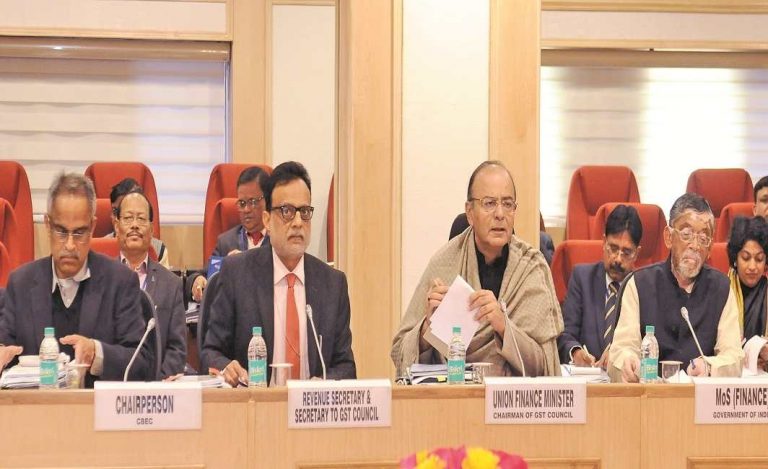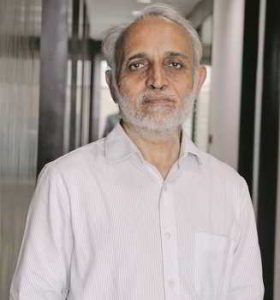
In the none-too-enlightening debate over GST, which is all set to roll out from July 1, what has escaped notice is the new constitutional entity, the GST Council. It comprises the finance ministers of states and Union Territories and is headed by the Union finance minister. The 101st Constitutional Amendment has created the Council through Article 279A.
We know that Articles 74 and 75 refer to the Union council of ministers and the prime minister, and Articles 163 and 164 to the council of ministers in states and the chief minister. These cabinets form the executive branch in the classic triadic legislature-executive-judiciary.
The GST Council seems to be an intermediate level of the executive, and unlike the cabinets at the centre and the states, it has the mandate of determining the rates under GST through a consensus. The mandated task is specific, and because it is written in black and white in the text of the constitution, there is no wiggle room of any kind.
The idea of GST, which creates a single tax regime across the country, has been so alluring to bureaucrats and politicians that they rarely pause to look at the morphological changes that they are bringing about in the constitutional structure and what it would mean to the philosophy of constitutional governance in the long term. The council of finance ministers is placed in an odd position in the scheme of things because it falls between the Union and the state cabinets. Unlike the cabinets, it has been tasked with specific functions.
Its decisions will be decided on the basis of three-fourths of the weighted votes, with the complex arithmetic of the centre enjoying one-third weightage of votes and the states, three-fourths of the votes. It is meant to ensure that narrow margins will not suffice to decide on rates and that there has to be a substantial majority to do so. It would mean that the politicking between the centre and states and among the states themselves will become that much more messy. This would, however, allow the centre to prevail if it can carry a sufficient number of state finance ministers with it, and the states can hope to stymie the centre’s moves if two-thirds of them stand united. Its decision is not final. The rates recommended by the Council will have to be approved by the parliament and the state legislatures.
Finance Minister Arun Jaitley has been thrilled by the working of the Council so far, describing it in ecstatic terms as the finest example of “deliberative democracy” and of federalism. The success of the Council as well as that of the GST regime is based on the premise that in matters of finances and taxation, every state and every party in power will follow rationality. There is as yet no instance where the Council disagreed on rates and other measures to be taken.
What should worry those who are subject to GST is whether in their desire to create an ideal tax regime, they have ended up creating a constitutional machinery which is anything but simple. Also, in an attempt to rationalise things, has it created a mind-boggling labyrinth of definitions and rules. It will be argued that taxation matters are always complicated and to argue for simplicity in these matters is plain foolishness. It will also be argued in favour of the Council of finance ministers that it helps to bring together the multiple tax regimes and administrations of states and the centre into effective alignment.
What happens with the GST and the GST Council is that all taxation issues are vested in a mini-federal setup. It marks a significant change in the DNA of the Indian constitution as it stands now.
But the idea of a Council of finance ministers stands out like a sore thumb from whichever angle you look at it. It appears to be a super-sub-cabinet committee of the centre and states, whose decisions have to be taken back to the respective general cabinets and then to parliament and the state legislatures. What happens with the GST and the GST Council is that all taxation issues are vested in this mini-federal setup. It marks a significant change in the DNA of the Indian constitution as it stands now. A new strand has been introduced.
While there has been an elaborate discussion on the merits and demerits of the GST itself with almost all parties appearing to agree on its advantages, there has been no discussion on the mechanisms that are being set in place to administer the GST. The basic assumption seems to be that if GST is deemed good, whatever necessary administrative and constitutional changes that are being introduced should be also good. It is not sound logic. It is a well-known fact that the goals might be laudable, but the means adopted to achieve them may not be so.
The GST Council as the super- or mini-federal cabinet looks more troubling than reassuring. There is a beguiling attempt to involve the states in deciding taxes and assuring that their share in the tax pool is higher. But the long-term impact could be to erode the federal structure of the constitution.
The Council seems to be an attempt to forge homogeneity in tax matters by subtly forcing the states to fall in line.
The only safeguard against the executive tyranny of the Council is that the parliament and state legislatures will have to be more alert than ever on taxation measures. Given the parliamentary form of government where the party with the majority can force legislatures to accept the executive’s decisions, it looks like the latter will remain mere pawns in the hands of the former. There is a need to check the growing powers of the executive to maintain that elusive ideal of the separation and balance of powers in the constitutional structure. That is the keystone of a democracy.


